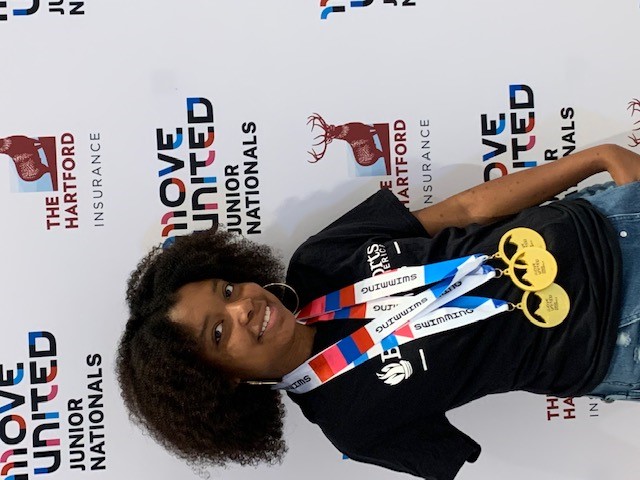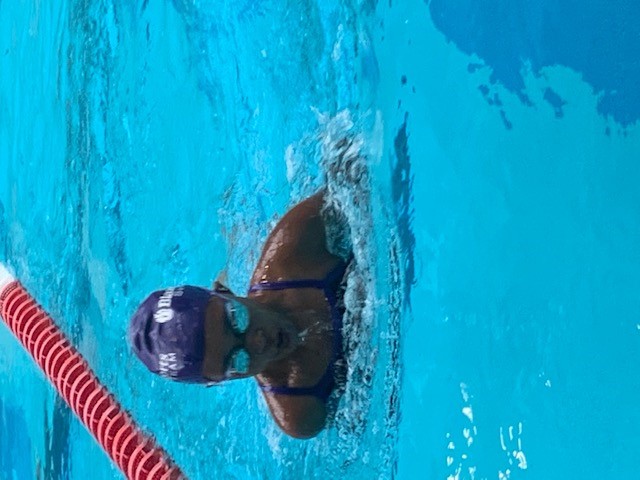Pediatric Cancer Can’t Stop This STAR Athlete
Posted on byThere are very few resources for both parents and children about rare cancers. CDC’s Mechelle Brown understands this well. Her daughter Tyler’s fight with cancer left Mechelle struggling to find resources. She was forced to make tough choices with little information. Tyler’s survival with rare cancer is, well, rare. Both Tyler and her mom want to share her story to give people hope.

When Tyler was 13, she found a lump under her right arm. The first test found that it was benign (not cancer). Tyler had surgery to take the lump off. Later, a different test found that the lump was a kind of cancer called a malignant peripheral nerve sheath tumor (MPNST), specifically a malignant triton tumor. MPNST forms in the cells around nerves. A malignant triton tumor is a fast-growing tumor named after the triton salamander’s ability to regrow lost legs.
When Mechelle tried to research MPNST, she found very few articles. The ones she did find were bleak and horrible. A lot of the information on the Internet was decades old and hard to understand. There were no articles written by current experts in the field, and specialists were also hard to find.
CDC’s National Program of Cancer Registries is helping make data about childhood cancer available for research faster. The Childhood Cancer STAR Act requires data about childhood cancer to be available within weeks of diagnosis.
“There is a big gap in resources for both parents and children that are easily accessible and written in age-appropriate language,” Mechelle said. “Understanding who the specific rare cancer experts are can help you get other opinions.”
Choosing an Aggressive Treatment
Mechelle and Tyler got opinions about the right treatment from several doctors. They chose radiation therapy, but the lump in Tyler’s arm grew. Tyler’s doctors said she had two options: remove the lump and surrounding tissue, or amputate her arm.

“One of the reasons I immediately, without hesitation, went with amputation was because none of the stories I read included amputation,” Mechelle recalled. “It was all stories of [cancer patients] who continued to try the route of tumor removal. I figured if the cancer was going to be aggressive, we were going to be equally as aggressive.”
When the options were explained to her, Tyler’s first question was, “Will I be able to swim?” The doctors assured her that she would be able to do anything she put her mind to.
Tyler’s right arm was amputated on October 23, 2019, and she has been cancer-free for almost 2 years. She gets checked for cancer every 3 months. But Mechelle still worries because MPNST is so aggressive. Her advice for other parents of children with cancer is, “Be careful where you get your information, and don’t be afraid to ask doctors tough questions.”
In the meantime, Tyler is back in the pool. With her para swim team, she competed in the 2021 Junior Nationals, her first national Paralympic swim meet. When asked for her advice to others in a similar situation, Tyler says, “Look for the light at the end of the tunnel, because it is there whether you notice it at first or not.”
Posted on by

